Our mentors include graduate students trained in the four areas: clinical psychological sciences, cognitive psychology, industrial-organizational psychology, neuroscience and behavior, and social psychology. Below is a list of graduate student mentors within each of these areas.
Clinical Psychological Sciences

Caroline Balling (she/her)
Introduction
Hello! My name is Caroline (she/her), and I am a fifth-year graduate student in the Clinical Science program. I came to Purdue after two years in Providence, Rhode Island as a post-bacc Research Assistant. Prior to that, I completed my undergraduate degree at Furman University in South Carolina.
Research Interests
My research interests lie in the evidence-based assessment of psychopathology, and specifically, in empirically-derived alternatives to the DSM for diagnosis.
Career Path
My career path is TBD! I entered graduate school certain of my R1 faculty dreams, but I remain open-minded towards academic medical centers, clinical work with higher-risk patient populations, liberal arts education, or industry.
Mentoring
Without the support of peers and mentors, academia can be a lonely and discouraging place. My priorities as a mentor are nonjudgement, intentionality, and warmth. I am particularly invested in easing the burden of the hidden curriculum for students considering or acclimating to graduate school.
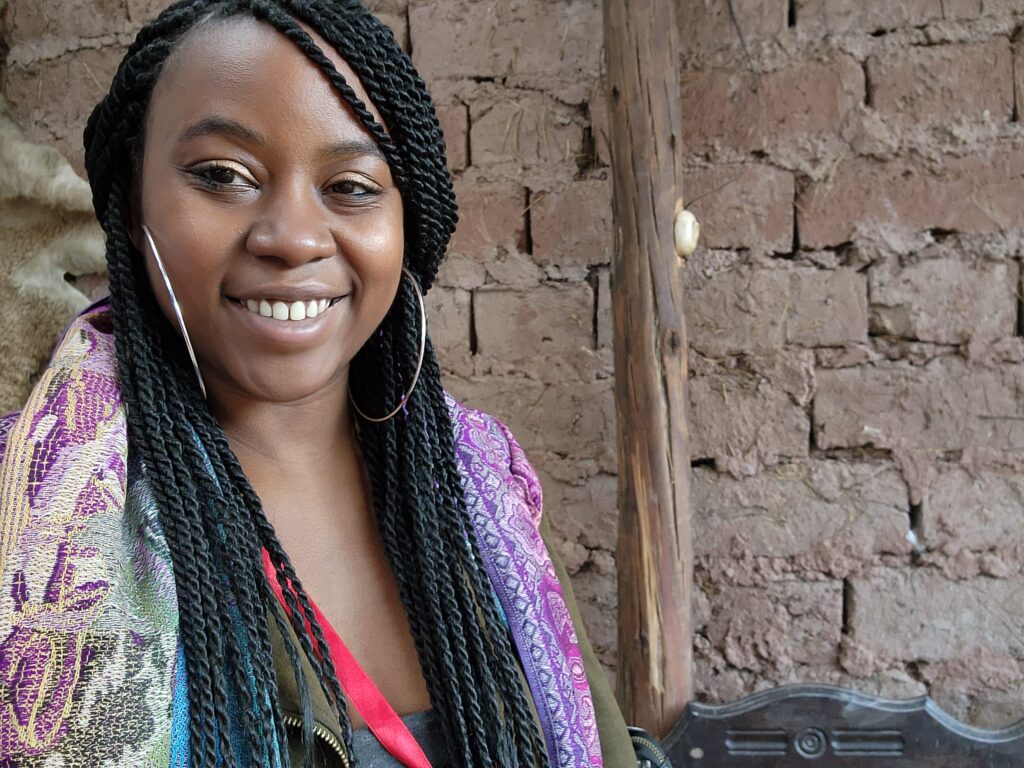
Lisa Brown (they/them)
Introduction
Hello! My name is Lisa (they/them), and I am a fourth-year graduate student in the Clinical Science program. I came to Purdue from Atlanta, Georgia where I received my bachelor’s degree from Spelman College.
Research Interests
My research interests include psychotic disorders from a neurophysiological lens (specifically EEG and MRI) in addition to a lens of diversity, equity, and inclusion.
Career Path
I am still exploring what my career path will be. I know that it will be some combination of practicing evidenced-based therapeutic practices with those with severe mental illnesses, and research.
Mentoring
My process to where I am has been so heavily aided by the mentors I have had in my life, so it is important for me to give that to someone else. My mentorship style changes based on my mentees needs, but I would say I primarily educate and cheerlead.
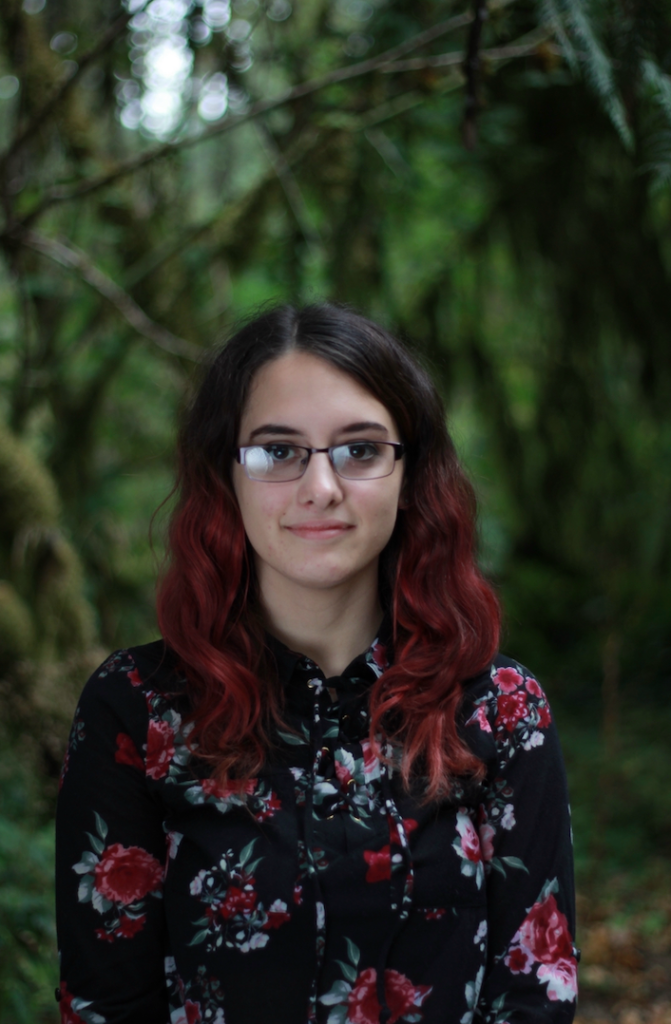
McKenzie Figuracion (they/them)
Introduction
Hi there! I am a third-year clinical psychology doctoral student studying under Dr. Sarah Karalunas. I grew up in the Pacific Northwest and graduated from Portland State University in 2020. I studied psychology with an emphasis in neuroscience and a minor in sexuality, gender, and queer studies.
Research Interests
I am interested in how electroencephalogram (EEG) biomarkers can be used to understand heterogeneity within Attention-Deficit/Hyperactivity Disorder (ADHD). More specifically, I am investigating how these biomarkers could potentially be used to assess clinical risk in childhood and enhance the diagnostic process.
Career Path
My end goal is to build a career in academia as a researcher in a university setting. Heading my own lab, teaching courses, and mentoring students of all backgrounds is what I see myself doing in the future.
Mentorship
As a first-generation student, any progress I’ve made in academia is largely due to mentors who were invested in my progress and cared about my success. I’ve had excellent guidance through my career so far and I would love nothing more than to give back to others in this same way. My mentoring style will vary based on what will help my mentees grow and learn, so I am flexible!

Roz Harold (they/them)
Introduction
I am a fifth-year doctoral student in clinical psychology working with Dr. Dan Foti. I completed my BA at Boston University in 2016, where I majored in psychology and minored in Deaf studies. While at BU, I served as the lab manager in the Cognitive Neuropsychology Lab under Dr. Jackie Liederman, a research assistant at the Boston VA Translational Research Center for TBI and Stress/Spinal Cord Injury under Dr. Melissa Amick, and spent a summer in the Lifespan Development Lab at The University of Texas at Austin under Dr. Elliot Tucker-Drob. After completing my bachelor’s, I worked as a research coordinator at the Center for Depression Research and Clinical Care at UT Southwestern Medical Center under Dr. Madhukar Trivedi. I was born and raised in Austin, Texas and in my free time I can be found hiking, biking, and swimming around town. I have two goofy cats, one plant I struggle to keep alive, and a serious love for my extended queer family.
Research Interests
I am interested in mapping pathophysiological processes that contribute to depression onset. I specialize in EEG acquisition and signal processing to understand how people respond to certain events like making a mistake, getting a reward, and being socially evaluated. Recently, my colleagues and I have designed a way to collect EEG via telehealth, which represents an exciting step forward for inclusion of people who may have a hard time travelling to universities and medical centers for medical evaluation and research participation. In the future, I hope to expand my repertoire to include evaluation of the impact of genetics and environmental toxins, as well as other imagine modalities such as MR spectroscopy.
Career Path
I hope to continue a research-focused career at either an academic medical center or an R1 institution like Purdue.
Mentorship
I would not be where I am today without the guidance and mentorship I received from people along the way. I felt like there were so many invisible rules for successfully navigating academia and continue to feel endlessly grateful for the people who gently pointed me in the right direction. My mentorship style leans towards mentoring by educating mentees about the things I’ve learned along the way, and towards connecting mentees with others who will support their goals.
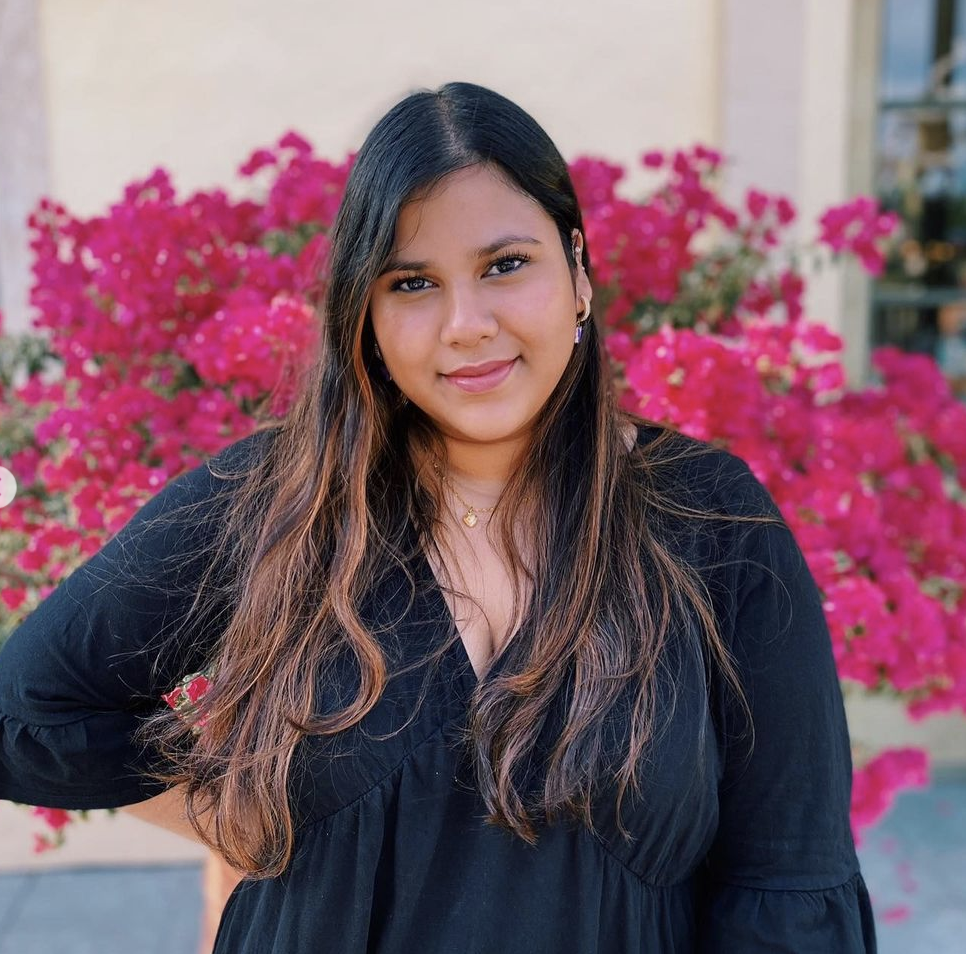
Shabeba Islam (she/her)
Introduction
Shabeba is a third year student in the Clinical Psychological Science program working with Dr. David Rollock. She graduated from New York University with a Bachelor’s and Master’s degree in Psychology and a minor in Child and Adolescent Mental Health Studies.
Research Interests
Shabeba’s research interests include access to mental health services in POC communities, psychopathology in South Asian and Muslim communities, and acculturation of South Asian immigrants. She is a first-generation student and has an interest in studying internalizing disorders on a cross-cultural scale.
Career Path
At the conclusion of the program, Shabeba hopes to serve the South Asian community and other similarly underrepresented communities through research and practice. Her ultimate goal is to find a faculty position at a major research university.
Mentorship
She is a first-generation student and extremely passionate about helping other students find the resources and opportunities they need to succeed because she was always able to rely on her mentors. Her preferred mentorship style is supportive and focuses on problem-solving to help mentees find the right opportunities and research fit.

Adilene Osnaya (she/her/ella)
Introduction
Hi! I am 5th year graduate student in the Clinical Psychology program working with Dr. David Rollock. I obtained my Bachelor of Science in Psychology and a minor in Spanish Studies from Dominican University in 2017. Subsequently, I worked as a lab manager and research coordinator in the SCIP Lab at Northwestern University. In my free time, I love playing with my puppy Leo, spending time with my partner and friends, drawing and painting, and doing puzzles.
Research Interests
My research interests include examining the role of ethnicity-related stressors and cultural factors on psychological adjustment and mental health outcomes among Latinx populations. More specifically, I am interested in identifying protective factors and promoting resilience among this population.
Career Path: I envision myself having a research-oriented career at either an academic medical center or a research-intensive institution.
Mentorship
I would not be in this doctoral program if it wasn’t because of the amazing mentorship I received as an undergraduate and a postbacc. I am the first in my family to get a bachelor’s degree and to attend graduate school and navigating the education system was no easy task. My undergraduate advisor was instrumental in helping me discover my passion for research and in making me see that I DO belong in academia. It was with her guidance and that of other amazing mentors that I was fortunate to work with as a postbacc that I have been able to make it this far. Given how crucial mentorship has been to my success, I feel like it is my responsibility to do the same for those who come from similar backgrounds. Everyone learns differently so my mentorship style varies depending on the individual. I strongly believe in a collaborative mentorship relationship.
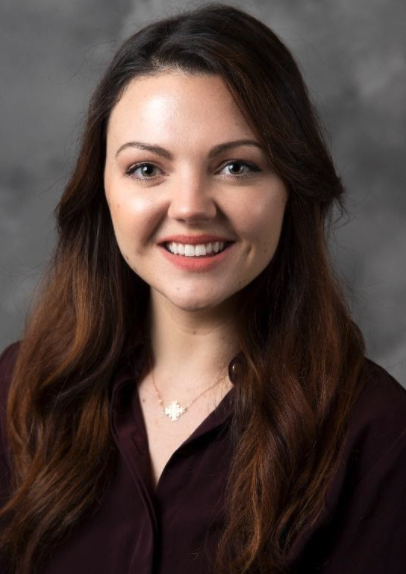
Skye Napolitano (she/her)
Introduction
I am a 5th year Ph.D. student in Clinical Psychology. I work with Dr. Dan Foti and Dr. Sean Lane and I study emotion regulation and affective processing in individuals who struggle with emotion dysregulation. I am also interested in how different perceptual phenomena influence emotion. While I’m originally from North Dakota, I grew up all over the U.S. and I’m most recently “from” Cleveland, OH, where I completed an M.A. in Clinical Psychology before coming to Purdue. In my free time, I love to lift weights, hike, take walks with my partner, hang out with my incredible, supportive program buddies, explore the local area, find new places to eat, and read.
Research Interests
Emotion regulation, Borderline Personality Disorder, affective intensity, emotional-perceptual processing
Career Path
My ultimate goal is to build a thriving research career in an academic setting. Ideally, I will work in a high research output institution and get to run my own research lab, teach students, and mentor students from undergrad through post-doc levels.
Mentorship
Mentorship—both given and received—has been one of my favorite parts of my academic story. I am very fortunate to have had mentors who believed in me and helped me understand largely invisible processes (especially those which are evaluative!) in order to get me where I needed to go. Thus, it has been my mission to pass on that guidance and kindness through mentoring others. Critical, too, are the interpersonal relationships which are cultivated in a mentorship setting—in my opinion, the best type of mentorship someone can offer is transparent and supportive and scaffolded to the individual’s needs and strengths. It has been instrumental in my academic career and I so I want to help others through mentorship, too! My mentorship styles are Cheerleading, challenging, educating.

Wei-Siong Neo
Introduction
I am a sixth-year PhD student in clinical psychology. My advisors are Dr. Bridgette Kelleher and Dr. Dan Foti. I am from Singapore, a country in Southeast Asia. In addition to my doctoral education at Purdue, I had studied at University of Michigan and Carnegie Mellon University. I enjoy leading an active lifestyle, including running, biking and hiking.
Research Interests
My current research interests lie at the intersection of neurodevelopmental disorders (e.g., autism spectrum disorder) and multimodal psychophysiology (e.g., ECG and EEG), with a particular focus on infants and preschoolers. Specifically, I am interested in using psychophysiological methods to better understand typical and atypical development, with the broad aim of developing objective markers to advance early diagnosis and intervention of developmental conditions.
Career Path
I hope to pursue a research-focused career, possibly in an academic medical center or research institute.
Mentoring
Mentoring is important to me because I have personally benefited tremendously from both formal and informal mentoring experiences in the past (and currently!) and would love opportunities to pay it forward. I have always believed that life, in both personal and professional domains, often offers us multiple possible pathways and there are no right or wrong answers for many of these choices. Having others to talk to and learn from have been especially helpful for me. As a mentor, I seek first to listen, offer some perspectives, and do my best to help my mentees succeed in their goals! My mentorship styles are ideating and educating.
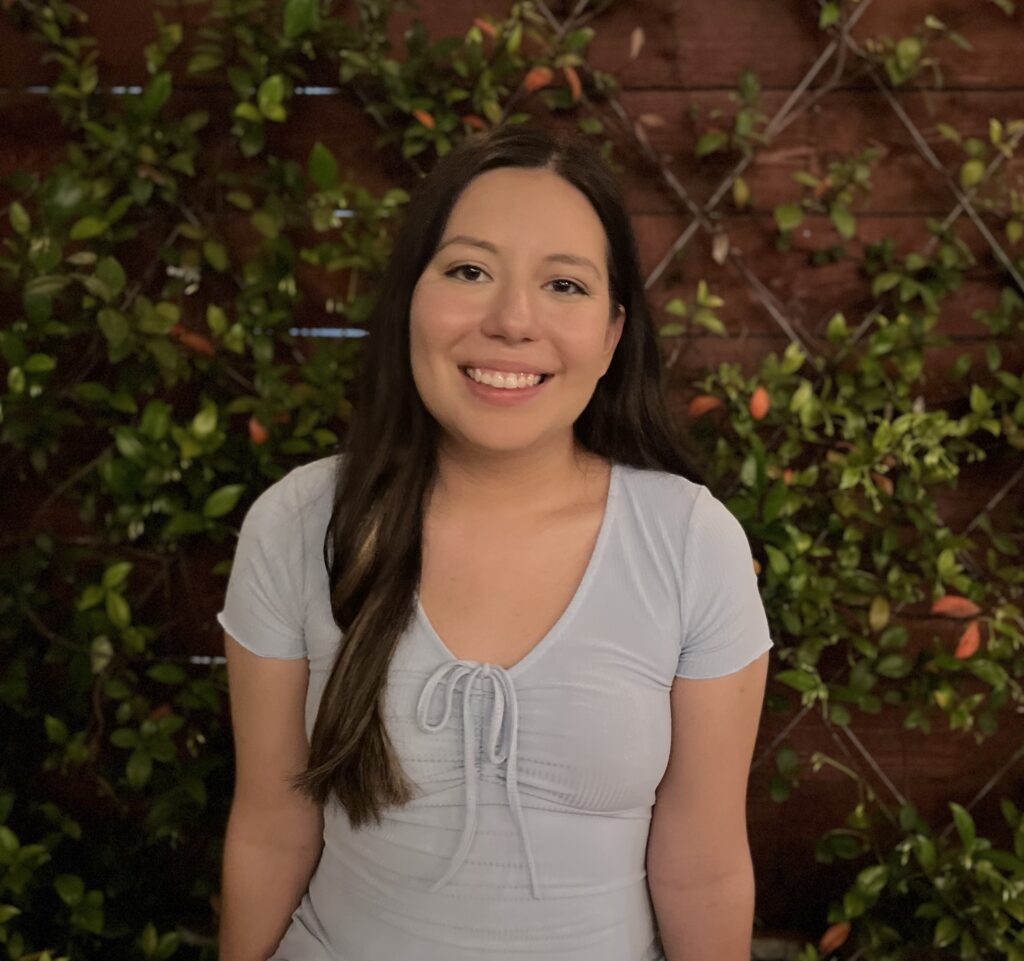
Katiana (Kat) Estrada (she/her)
Introduction
Hi! My name is Kat Estrada and I am a second-year clinical psychology Ph.D. student working with Dr. Bridgette Kelleher. Before coming to Purdue, I received my B.S.A in Neuroscience from the University of Texas at Austin and my M.S. in Psychological Sciences from the University of Texas Dallas.
Research Interests
My current research interests focus on understanding how caregiver-child dyadic interactions shape child language development. I am specifically interested in examining caregiver-child interactions to inform the development of evidence-based treatments for children with speech and language disorders.
Career Path
My goal is to have a research focused career in either an academic-medical center or R1 university.
Mentorship
Supportive mentorship is key to success in academia, and I would not be where I am without the countless mentors who have helped guide me in my academic journey. I am incredibly passionate about sharing my insight with developing mentees to help them develop and reach their goals!
Cognitive Psychology

Alexa Bushinski (she/her)
Introduction
I am a 4th year graduate student in Cognitive Psychology here at Purdue. I received my B.A. in Psychology from Metropolitan State University in Minnesota. I worked as a lab manager at UW-Madison before I came to Purdue in 2020.
Research Interests
My current research interests center on working memory and spatial navigation. I hope to further our understanding of how individual differences in spatial navigation and working memory relate to each other and how people can become better navigators.
Career Path
I am open to the multitude of opportunities that may arise after graduation including paths in academia, industry, and government.
Mentorship
It would be difficult to say where I would be without the knowledge, advice, and help of my past and current mentors. Yet as I have gained experience, I have been given the opportunity to mentor others, and it is extremely rewarding to be involved in the process. The things I have learned from these relationships is something hard to find elsewhere, and that is why I want to continue mentoring others. It is both enjoyable and exciting to help others grow and discover their passion for psychology, and I continue to learn from each of my mentors and mentees. My mentoring style is mentoring by educating.
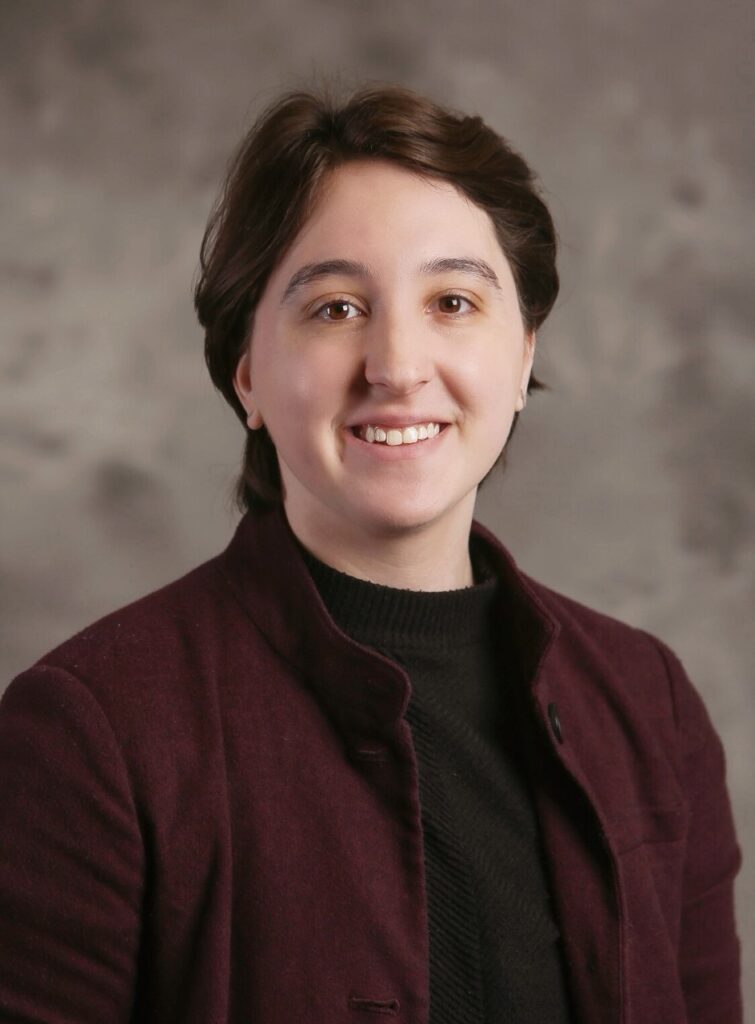
Andy Fordyce (they/she/he)
Introduction
I am a fourth year PhD student in the cognitive psychology program. I work with Dr. Tom Redick in the Purdue Applied Cognition Lab. I obtained my bachelor’s degree at Purdue majoring in Brain & Behavioral Sciences and minoring in Human Resource Management.
Research Interests
My research interests are primarily in learning, memory, and attention. Specifically, I am interested in individual differences in working memory and the relationship between working memory and academic performance. My current research is focused on how study strategies like retrieval practice impact memory search and retrieval processes.
Career Path
I am still undecided about my career path after graduate school. Currently, I am considering options both in academia and industry.
Mentorship
As a first-generation student, I wasn’t aware of many of the procedures and implicit details of academia before going to college and talking to the various graduate students and faculty members that have served as my mentors. I would not be where I am without their advice and support. I hope to pay that support forward and help mentor other students. My primary method for mentoring is through educating. Namely, sharing relevant experiences and resources to help guide my mentees through their academic careers.
Industrial-Organizational Psychology
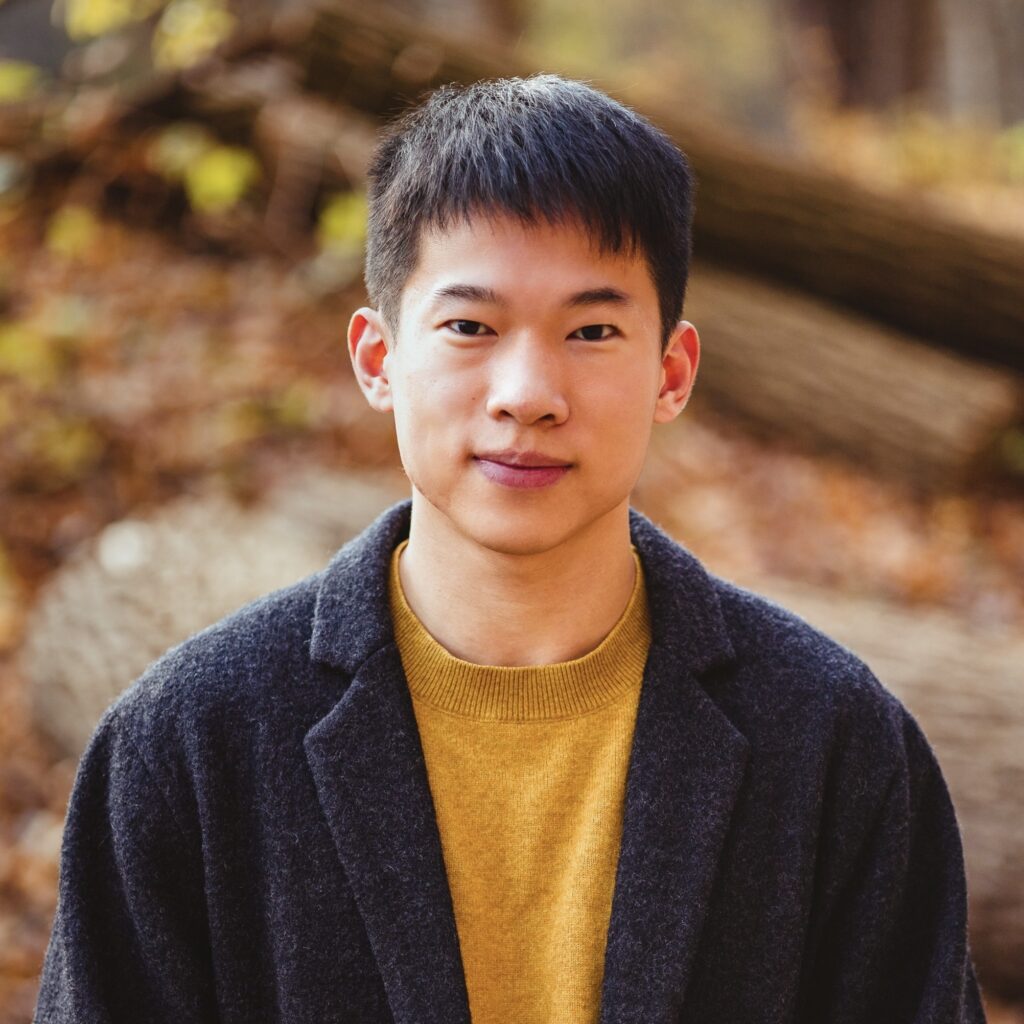
Zhixu (Rick) Yang (he/him)
Introduction
I’m a 4th-year Ph.D. student in Industrial-Organizational Psychology, mainly working with Dr. Franki Kung. I grew up in China where I received my B.S. in Psychology from Zhejiang University.
Research Interests
My research interests include goal pursuit, cultural diversity, conflict management, and well-being. My research is multidisciplinary (e.g., social/cognitive psychology, behavioral science, management) and uses diverse methods (e.g., psychometric, experimental, dyadic, longitudinal).
Career Path
I hope to become a professor in a university or a research scientist in the industry.
Mentoring
I believe that success is helping others succeed. I’m especially passionate about helping students from minority groups prepare for grad school application. I would love to explore the specific mentorship style with each of my mentees. Overall, I prefer to help mentees discover their potential and provide resources and advice. My mentorship style is Mentoring by Connecting and Ideating.
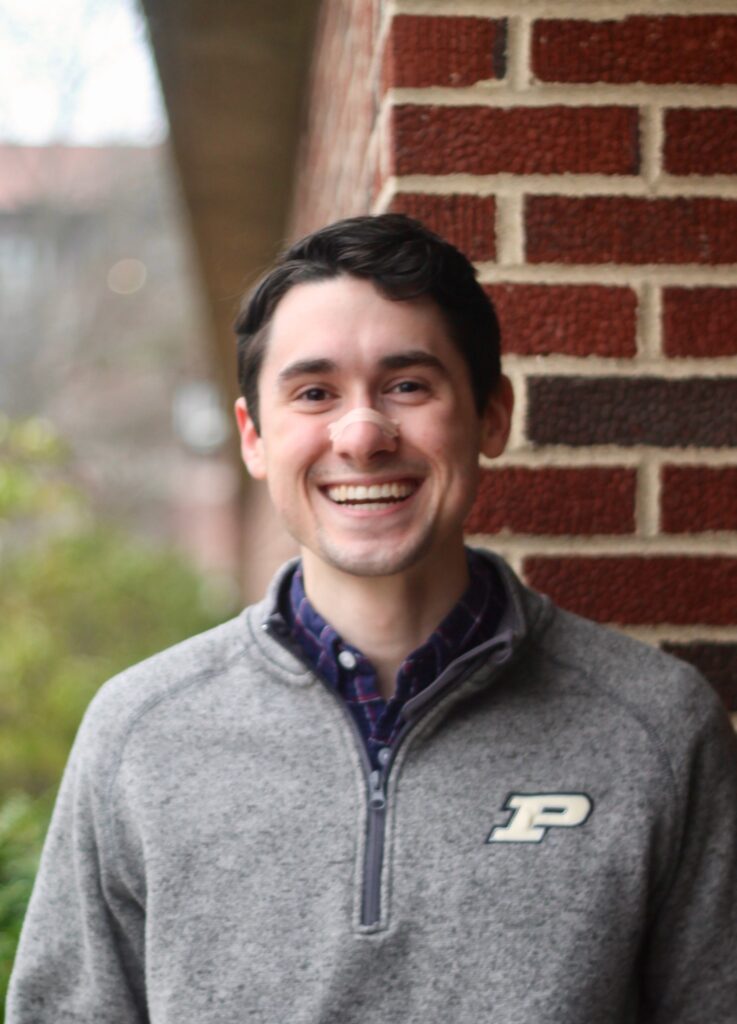
Dante Bruno (he/him)
Introduction
Hi friends! I am starting my second year of grad school in Industrial-Organizational Psychology.
Research Interests
Currently, my research is focused on organizational inclusion and multiple goal pursuit.
Career Path
After grad school, I hope to work in industry helping to make the workplace a more enjoyable and equitable environment.
Mentoring
Mentoring has always been a huge part of my academic and personal life experience, and I would not have made it to where I am today without many generous formal and informal mentors. I hope to pay as much of that forward as I can to others – especially those that might feel lost on their life path (a place I’ve been many times)! My approach to mentoring is to be a sounding board and form of support for others. I may not have all (or any) of the answers to mentee questions, but I will always be willing to talk things out, find resources, and help mentee recognize their potential and worth. My main mentoring style is typically ideating and cheerleading. Also happy to mentor through connection when applicable

Daphne Hou (she/her)
Introduction
Hi! I’m a fourth-year graduate student in I-O Psychology. I have gotten both of my Bachelor’s and Master’s degrees from Purdue in Financial Planning and Human Resources, respectively. Prior to coming back for a Ph.D., I have worked in the industry as a HR professional for over 3 years in talent management and HR operations.
Research Interests
My research interests include vocational interests, career choice and development, cross-cultural topics, and feedback.
Career Path
After graduation, I am hoping to land a research-related career in either industry or academia.
Mentoring
Mentoring is important to me as I have had great mentors who have positively impacted my life, I want to do the same for others. My mentoring style is very casual, though I prefer having a rough agenda with my mentee(s) on the topics that they are mostly interested in covering in the first session. It would work the best when mentees are very motivated and have clear goals that they want to achieve through this program.
My mentorship style is mentoring by cheerleading and connecting. I prefer connecting with my mentees as friends. I would listen to my mentees’ needs and goals to tailor my approach. Sometimes I may offer advice based on my personal experiences; sometimes I may connect my mentees with the right resources. I am good at noticing positives and strengths in others and will definitely bring it to mentorship.

Christine Cairoli (she/her)
Introduction
I am a second-year Ph.D. student in Industrial-Organizational Psychology working with Dr. Tara Behrend in the WAVE (Workplaces and Virtual Environments) Lab. I hold a Bachelor of Science degree in Applied Mathematics from the United States Naval Academy and a Master of Science degree in Operations Analysis from the Naval Postgraduate School. I am a human resources professional with over 10 years of industry experience.
Research Interests
Research interests include training improvement, virtual reality and learning, people analytics, talent optimization, big data, and text analysis with a focus on inclusion of underrepresented populations and military personnel and environments.
Mentoring
Mentorship has provided me guidance throughout my academic and professional career. I found having a variety of mentors made a large impact on my growth and helped shape my own experiences. As a result, I look to support others regardless of shared interests or perceived fit. You never know what you have to offer someone until you start a conversation. My style is a combination of mentorship by connecting and educating along with adding coaching. With my experiences in various educational and industry settings, I am familiar with many resources and ways to make connections. I value sharing and educating others on ways to become more self-sufficient and successful based on their own goals and priorities while providing support along the way.
My mentorship style is a combination of mentorship by connecting and educating along with adding some coaching principles to areas I’m not as familiar with. With my experiences in various educational and industry settings, I’ve become familiar with many resources and ways to make connections and value sharing and educating others on ways to become more self-sufficient and successful.
Neuroscience and Behavior
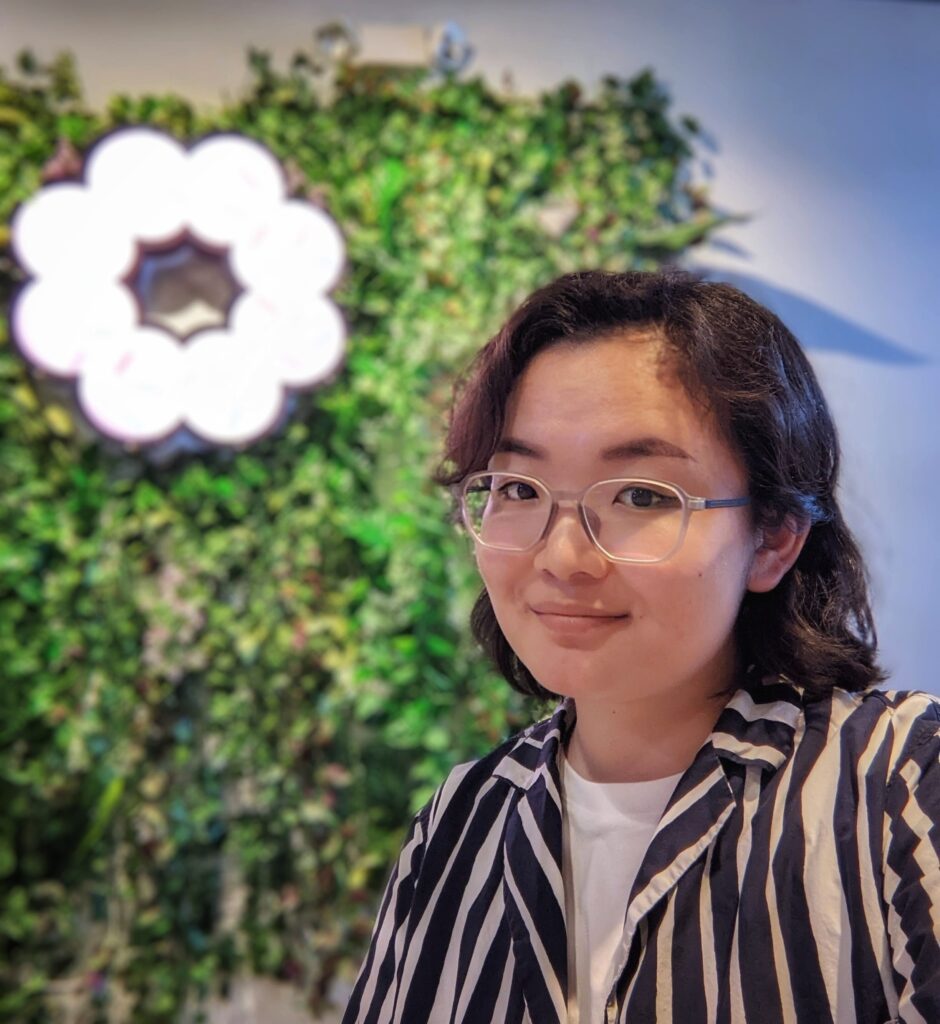
Soyol Enkh-Amgalan (she/her)
Introduction
I’m a fouth-year Ph.D. student in Neuroscience and Behavior program working with Dr. Julia Chester. I also completed my B.S. in Brain and Behavioral Science with a minor in Art and Design at Purdue. I’m from Mongolia.
Research Interest
I am generally interested in studying substance use disorders. Specifically, I study how environmental stressors such as pesticides or chronic alcohol exposure and aging affect reward sensitivity, motivation, and cognition in mice selectively bred for high alcohol preference.
Career Path
After graduate school, I exploring career options in teaching and/or industry.
Mentorship
There is a lot of uncertainty in academia, and I often found myself lost and not confident about what I should do or prepare for my future. But I’ve received great mentorship and guidance that helped me reach where I am today. But I still wish I knew more about psychology and neuroscience field. I hope to provide guidance and support to others and help them navigate their current and future challenges. My mentorship style is educating, ideating, and cheerleading. I can also connect my mentees to resources in neuroscience and animal research inside and outside the department.

Erisa Met Hoxha (she/her)
Introduction
I am a second-year graduate student in the Neuroscience and Behavior program working with Dr. Sydney Trask. Prior to Purdue, I earned my BS in Psychology from the University of Houston.
Research Interest
Broadly speaking, I am interested in the neurobiology of learning and memory- more specifically I am interested in how context (or environment) influences avoidance behaviors and how an avoidance memory is acquired, consolidated, and retrieved.
Career Path
I hope to pursue a research-focused career following grad school.
Mentorship
Much of who I am, and my developing interests have been largely shaped by the guidance and mentorship that I have received from others. Having a supportive community that believes in me and is invested in my progress has been truly empowering, making every effort worthwhile. I aspire to be for others what my mentors have been for me. I believe in an adaptive approach to mentoring, tailoring my support to meet the unique needs of each individual.

Alisha Aroor (she/her)
Introduction
Hi! I’m a fifth-year Ph.D. student in Neuroscience and Behavior in Dr. Julia Chester’s lab. I also received my B.S. in Biology with a minor in Psychological Sciences and a certificate in Entrepreneurship and Innovation at Purdue University.
Research Interests
My current research interests broadly involve alcohol-induced neuroinflammation and cognitive impairment. Specifically, I’m interested in the effects chronic adolescent alcohol consumption has on neuroinflammation and cognition during adulthood as well as the effects chronic alcohol exposure has on exacerbating cognitive decline and neurodegeneration during aging.
Mentorship
As an international undergraduate student, I wasn’t completely aware of all the resources and opportunities available as I tried to navigate my future career goals. Through the years, I’ve been fortunate enough to be surrounded by great mentors who helped me discover my passion for research and to whom I attribute a lot of my personal and professional growth. I’ve also had the opportunity to mentor undergraduate students in the past and found the experience extremely rewarding. With the experiences as both a mentee and a mentor, I hope to provide students with support and resources to help them succeed in both their academic and personal pursuits. Mentorship style is mentoring by educating.

Payton Robinson (she/her)
Introduction
I earned my bachelor’s in psychology from Purdue Fort Wayne and am currently an incoming first year PhD student in Neuroscience and Behavior working with Dr. Sydney Trask.
Research Interests
My research interests include a translational understanding of learning and memory; more specifically, how the aged population updates their memories via fear (context fear conditioning in rodent models) and reward (reward-based decision making in humans).
Career Path
Because I’m so early into my professional development, I’m not quite sure what path I want to take after graduate school, but I’m open to anything!
Mentorship
Mentorship is very important to me because I come from a place where true mentors are few and far between. Without the guidance of a mentor, it becomes very easy to fall behind simply based on a lack of knowledge that you don’t even know that you have. I was lucky to have multiple mentors that were able to shape my mind and ultimately decisions that have helped me get to this point— coming from poverty to being a first-generation student and athlete, and now the first graduate student of even my extended family. Like myself, are so many new “firsts” emerging in a growing number of families. Though this is great for the growth of generations to come, it also means that there is this growing body of people tackling huge family milestones without much guidance from family due to their lack of experience. Mentorship offers a sense of peace and soundness to these individuals that they might struggle with if not for secure guidance. With that being said, I think my preferred mentoring style is education and ideation. If I can encourage someone to come up with good thinking and planning habits, along with educating them on the things their thoughts surround, then I did my job. My mentoring style is a mix of educating and ideating.
Social Psychology

Layla Dang (she/her)
Introduction
I am a fifth year PhD student in the Social Psychology program. Originally from Chennai (India), I moved to the U.S. for my undergraduate degree at a small-liberal arts college in Minnesota (St. Olaf College) where I earned a B.A. in Psychology along with concentrations in Women’s and Gender Studies and Management Studies. I moved to Purdue to be a lab manager and then continued as a graduate student in the social psychology program. I received my M.S. in Social Psychology from Purdue in 2021.
Research Interests
I am broadly interested in examining the psychological factors which allow systemic social inequities to persist and those that facilitate social change. My ongoing research specifically examines psychological antecedents and consequences of neoliberal feminist ideology, how people respond to newcomers who challenge existing social systems, and how minority groups contend with information about group-based advantages relative to other minority groups.
Mentorship
As an international student with hardly any understanding of the U.S. education system and academia in my early undergraduate years, academic research was not even on my radar. Incredible mentors along the way not only helped me discover my passion for research, but also were instrumental in supporting me as I found my interests and goals, eventually leading me to pursue a graduate degree in social psychology. Even now as a graduate student, having a community of supportive peers and mentors has been an invaluable source of support, solidarity, and accountability as I progress through this degree and work towards future goals.
As a mentor, I could provide both big-picture as well as concrete support, depending on what my mentee needs. I enjoy talking with students and peers about their personal and academic goals and supporting them through the process of identifying and working towards those goals. My mentoring style is Mentoring by Educating.
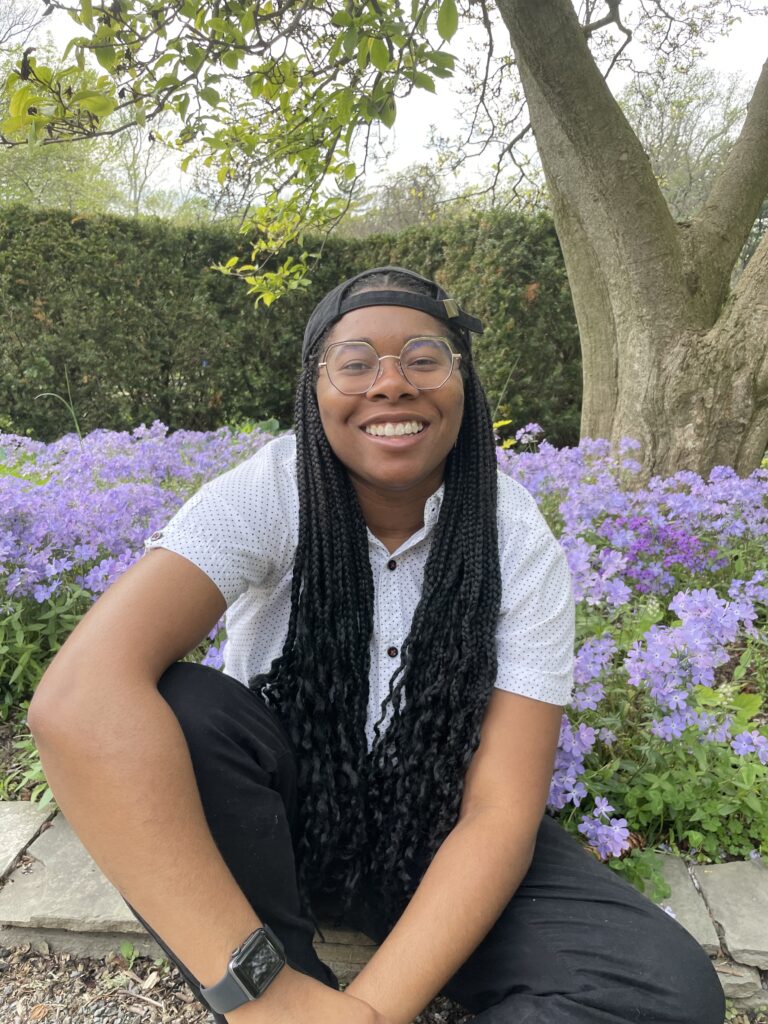
Elisabeth (Liz) Noland (she/they)
Introduction
Hey y’all! I’m a fifth year PhD candidate working with Dr. Margo Monteith in the Monteith Intergroup Relations and Inclusion lab. I was born and raised on the Southside of Chicago and obtained my Bachelor of Arts in Psychology and Spanish from Valparaiso University in 2019. I received my Master’s degree from Purdue University in 2021. I am the founder and chair of the Psychology Mentorship Program. In my free time, you can find me at the gym, somewhere outdoors, cooking up a good meal, or watching documentaries with my cat KJ.
Research Interests
My research centers on examining strategies for reducing intergroup bias and creating environments in which targets of bias can thrive. I am interested in how prejudice is manifested within people and society, and in one line of work I examine the effectiveness of various prejudice-reduction strategies to address biases at both the personal and systemic levels. In another line of research, we are investigating how confrontations of bias influence perceptions of norms around bias expression in a local environment and feelings of safety and well-being among targets of bias.
Mentorship
Throughout my life, I have been fortunate to have mentors who played a crucial role in my academic endeavors and achievement. As a first-generation college student, navigating the world of higher education was challenging to say the least, and at times, I did not feel like I had the capability or was in the environment best suited for me to thrive. However, I found refuge in mentors who guided me and provided me with resources and skills I needed to succeed. Mentorship is one of my passions and I want to help underrepresented students by providing them with useful resources, helping them to grow their professional networks, and sharing my own experiences. My hope is that through this experience students will feel supported and equipped to thrive in this field. My mentoring style includes Inspire and Motivate them and Mentoring by Educating and Ideating.

Rachel Taggart (she/her)
Introduction
Hello! My name is Rachel, and I am a fifth-year student in social psychology at Purdue, working with Dr. Kipling Williams. I received my master’s in general psychology in 2018 from the University of North Carolina at Wilmington. I was born in Miami Florida, and I have lived there most of my life, so it’s weird to finally experience seasons! I enjoy being out in nature, gardening, playing guitar, listening to music, taking pictures, and hanging out with my cat, Indy.
Research interests
I am interested in studying ostracism—being ignored and excluded—and its effects on those who are ostracized. Specifically, I am interested in how ostracism affects psychological needs like belonging and meaning, and how it influences wellbeing. Specifically, I am interested in studying ways to help people recover from ostracism and restore their threatened needs.
Career Path
I am interested in both academic and non-academic research-related positions. Preferably, I would like to continue researching ostracism and belonging.
Mentorship
I would not be here at Purdue if it had not been for the awesome mentorship I received. Beyond allowing me to achieve my goals, it also had a positive impact on my self-esteem and self-efficacy. This allowed me to realize how important it is to have guidance, especially when navigating areas that may feel new and intimidating. My approach to mentoring is to create an environment that is welcoming and supportive.
As a first-generation academic, one of my primary goals is to teach my mentees what I have learned through experience so that I can help clarify some of the uncertainty that comes along with choosing and navigating a career path. I also enjoy helping students achieve their academic and personal goals, by helping them to identify and track their goals, and by providing helpful resources and boosting morale. I would say my style involves both mentoring by educating and mentoring by cheerleading. I both enjoy teaching mentees what I have learned through experience and I enjoy boosting their morale.
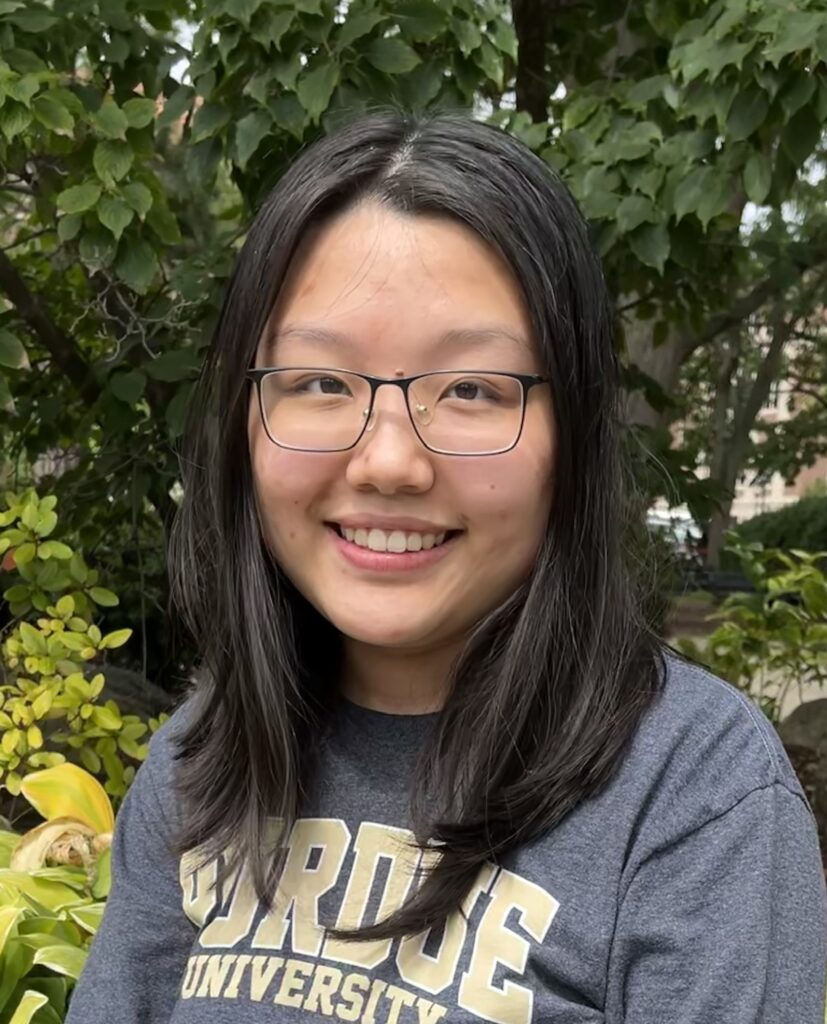
Junming Zhang (she/her)
Introduction
Hi! I’m a second year graduate student in Social Psychology working with Dr. Teri Kirby. I am from Beijing, China, and I came to the US and did my undergraduate studies in Psychology and Women, Gender, and Sexualities Studies at University of Richmond. My culture is an important part of who I am, and I love to learn about other cultures (especially through food)!
Research interests
I’m interested in studying how people perceive, experience, and navigate diversity in the society and in institutions (universities, companies, etc.). I’m specifically interested in studying diversity, inclusion, and belonging issues with an intersectional lens, investigating how intersectional diversity initiatives are received and implemented, and how individuals with intersectional identities are represented or marginalized in this process.
Career Path
I envision myself to be in a career that allows me to teach, mentor, and research.
Mentorship
I consider myself to be extremely lucky to be where I am right now. I have had multiple mentors that were influential to me and I continue to be blessed with good mentorships in multiple aspects of my life. I am also an unofficial mentor to many, guiding and inspiring other people and seeing their success brings me infinite joy.
My mentorship relies on connecting with my mentees and taking their perspectives to help them best achieve their goals. I believe in genuine human connections and I wish to cultivate a supporting environment for my mentees. I think there are a lot of information gaps in academia and I love to share resources that could be useful with my mentees.

Kira Means (she/her)
Introduction
I’m a second-year PhD student in Social Psychology.
Research interests
I work with Dr. Thekla Morgenroth and am broadly interested in studying feminism and gender-based prejudice; most of my recent research has focused on trans-exclusionary or gender-critical feminist ideology.
Career Path
I hope to eventually be a tenure-track professor in a program that values and provides opportunities for both research and teaching/mentorship.
Mentorship
I find mentorship incredibly rewarding and love getting to see mentees achieve great things. I often think about the ways I could have benefitted from more personalized mentorship when I was an undergrad, so I try to provide the kind of mentorship that I feel I missed out on. One of my main goals as a mentor is to make sure my mentees know that I deeply care about helping them reach their unique goals.
My mentorship relies on connecting with my mentees and taking their perspectives. I believe that my mentee will be benefited by our genuine connection and my continuous support. Instead of imposing my beliefs and aspirations to my mentee, I wish to take their perspectives and carefully listen to their goals before I give any advises or guidance. Taking my mentee’s perspective allows me to try my best in guiding them toward their goals and finding resources for them, etc.

Regina Henares
Introduction
I am a 6th year Ph.D. candidate working with Dr. William Graziano in the Social Psychology area. I am originally from the Philippines, but I grew up in Singapore, did my undergraduate studies in Colorado, and now I’m here in Indiana! I received my B.A. in 2017 from Colorado College, where I majored in psychology and minored in music.
Research interests
I am interested in exploring what motivates people to connect (and disconnect) from one another. This broad research interest has led to me explore three main variables that motivate interpersonal connections: the Big Five personality dimension of agreeableness, interests in people and/or things, and prosocial tendencies/responses.
Career Path
After grad school, I hope to stay in academia at a teaching institution, such as a liberal arts college. My undergraduate institution was a liberal arts college and I felt that being in a smaller institution allowed me to receive a lot of one-on-one mentorship with the faculty at my college. I hope to have similar opportunities for mentorship with my students, as well as opportunities to do research and teach, which is why I think working at a liberal arts institution would be the best-suited career for me.
Mentorship
I want to be a mentor because I know how lost I felt when I was first navigating the path to grad school or even just figuring out what I wanted to do with my life, and how grateful I was for the guidance of my mentors during those uncertain times. I truly would not be where I am today without the help and support of my past and present mentors, and I hope to pay their support forward.
My preferred mentoring style is to show support and encouragement for the individual. I also like to brainstorm and help come up with ideas for how to approach and overcome challenges and provide solutions for problems.